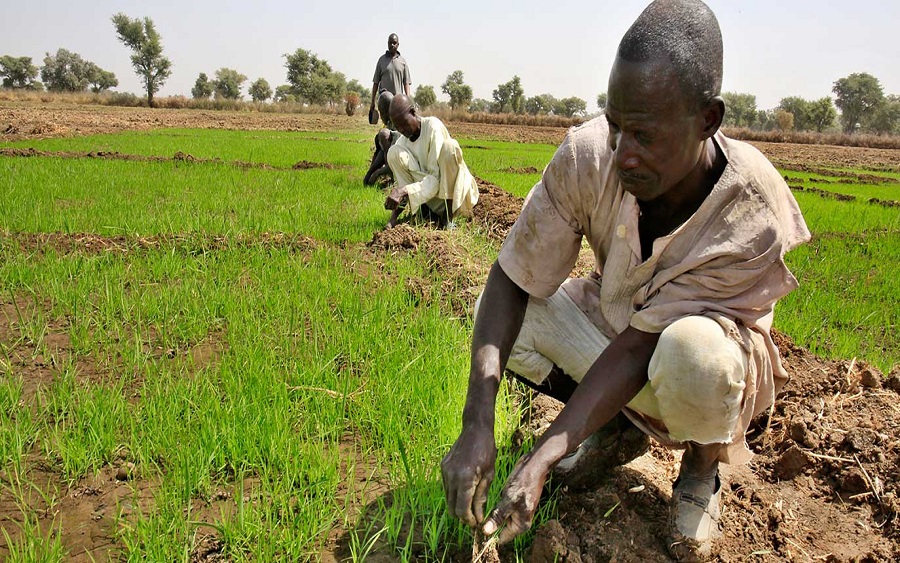Three factors are constraining Nigerian rice farmers from meeting their full potentials in terms of producing enough to meet growing demand.
Recent findings by Reuters disclosed that the constraining factors include lack of machinery and adequate irrigation, lack of adequate finance to procure fertilisers, and limited access to manual labour.
Many rice farmers across the country are facing these same challenges. A female rice farmer who was interviewed at work, said, “We work until we get exhausted, manually we get exhausted.” This is a major problem for Nigeria and its grand plan to locally produce enough rice to feed its citizens.
Increasing local production of rice is one of the many promises President Buhari made to Nigerians when he was campaigning to become the country’s President in 2015. Although he has taken steps towards fulfilling this promise, there are still concerns about whether rice farmers in the country have the capacity to meet demands.
In August 2019, the Nigerian government implemented a policy that shut down the country’s land borders. The move was intended to serve two purposes – fight smuggling and invigorate local production of essential food items such as rice and poultry products.
[READ MORE: Border closure weighing on operations of FMCGs)
President Buhari’s media aide, Garba Shehu, was quoted as saying that border closure helped push Nigeria’s rice production to 9.2 million tonnes last year. But Gro Intelligence, an agricultural data specialist, said the country’s total output in 2019 was 4.9 million tonnes which is below the country’s annual rice consumption of 7 million tonnes.
In the meantime, there is a projection that Nigeria will import more rice in 2020 due to the high cost of growing the commodity locally.
“The U.S. Department of Agriculture, meanwhile, expects Nigeria’s 2020 rice imports to rise 9% to 2.4 million tonnes, in part due to the high cost of unprocessed Nigerian paddy rice and elevated operating costs at mills.”
